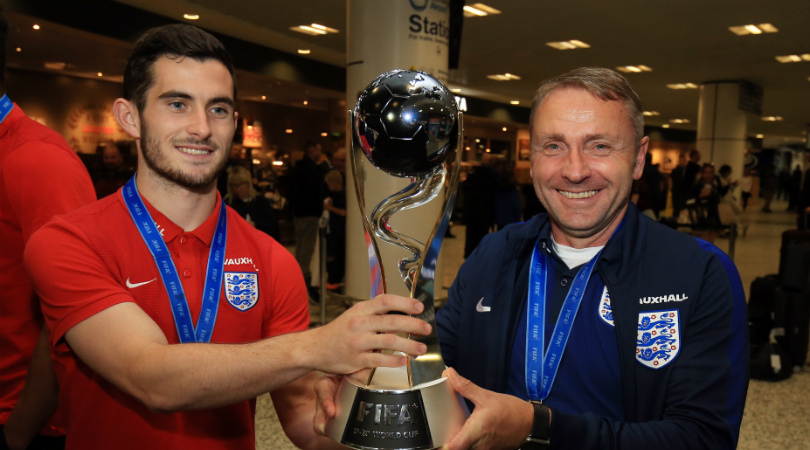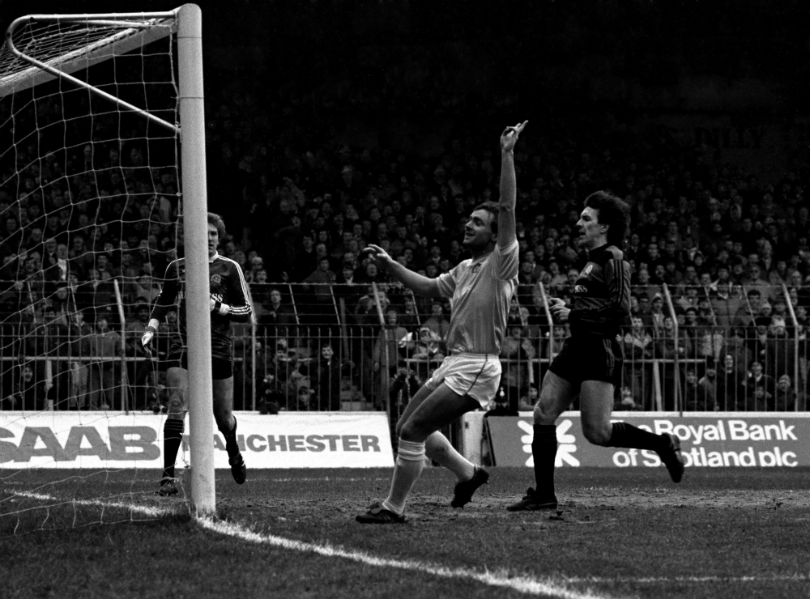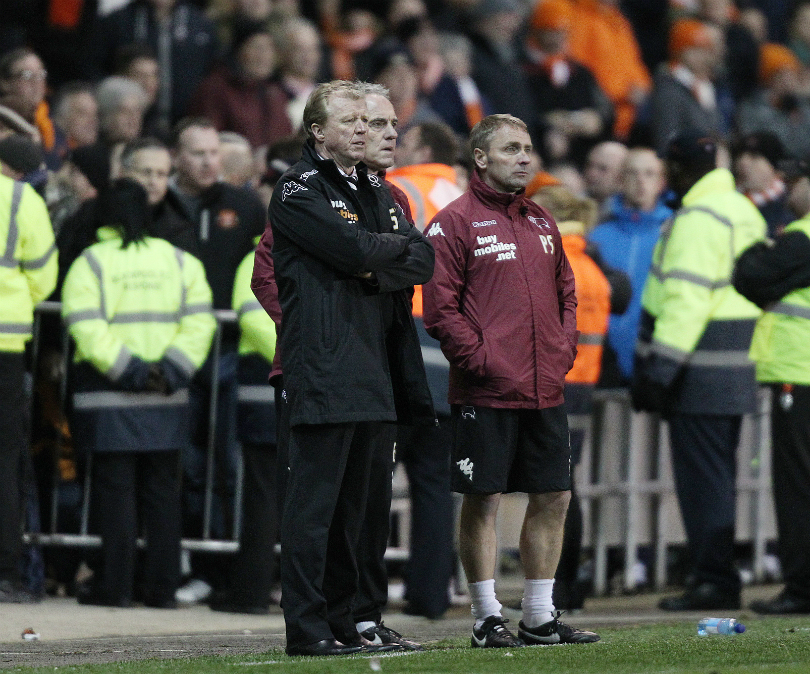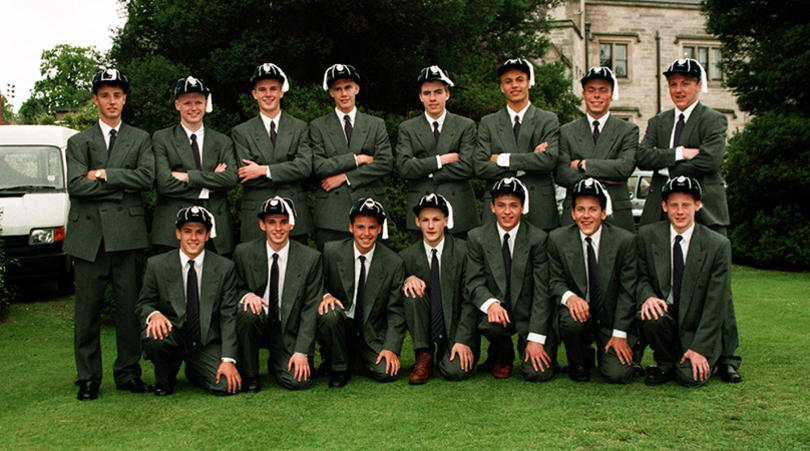The remarkable rise of England U20 manager Paul Simpson: from non-league boss to World Cup winner
Richard Edwards delves into the unusual career path of the gaffer who led England's talented U20 team to their stunning success in South Korea this summer

When Paul Simpson left Northwich Victoria in February 2012, the odds of him becoming the first England manager to lift a World Cup since Sir Alf Ramsey in 1966 would have been as lengthy as those accompanying a successful Donald Trump bid for the White House.
As the past 12 months have proved, though, making predictions about pretty much anything is becoming increasingly hazardous. In fact, so madcap is the current state of affairs that even Greg Dyke’s target of England winning the 2022 World Cup shouldn’t be discounted (steady on - FFT Ed). Particularly if those U20 players nurtured by the former Rochdale, Carlisle, Preston, Shrewsbury, Stockport and Northwich boss, have anything to do with it.
Anyone old enough to have seen Simpson play will bear testimony to his insatiable appetite for hard work
Anyone old enough to have seen Simpson play will bear testimony to his insatiable appetite for hard work, regardless of which team, division or position he was playing in. Born, appropriately enough, just four days before England met Germany in that World Cup final 51 years ago, the diminutive winger was a favourite wherever he went.
Whether he was playing for a Manchester City side that occupied an entirely different planet to the one managed by Pep Guardiola today, an Oxford United side getting acclimatised to life in the Second Division after hitting the heights in the old First Division or a Derby County team on the up under Jim Smith, Simpson brought graft, craft and a regular smattering of goals.

Made to manage
It was his attitude, rather than his ability that singled him out, however. Just ask Steve McMahon. The former Liverpool midfielder was managing third-tier Blackpool when Simpson arrived following his release from Wolves on a free transfer at the age of 34. “Some experienced pros who drop down into the lower divisions in their thirties are accused of looking for easy money, but you could not accuse Paul of that,” he said.
That enthusiasm, which has been apparent in every interview Simpson has done since England’s historic U20 World Cup triumph in Suwon, was also reflected in his determination to ensure that he gave himself the best chance of carving out a career for himself after retirement.
In 2001, while still at Blackpool, Simpson enrolled at Manchester Metropolitan University for a Sports Science degree which, between managerial jobs, took him five years to complete. In 2010, he also undertook a diploma in Sports Management at the Warwick Business School.
The best features, fun and footballing quizzes, straight to your inbox every week.
“I won’t forget one bit of advice Jim Smith gave me: ‘So long as you go into it and know that one day you are going to be sacked, you just get on with it'
He also found himself, like many other former pros, brutally exposed the vagaries of modern-day management. He once admitted that he first applied for the Rochdale job, while still a player at Spotland, because it would be good practice to write a CV and have an interview, not something too many footballers need to contemplate while still playing. It must have been quite a covering letter because when John Hollins vacated the ‘Dale hotseat in May 2002, Simpson was the club’s first choice to replace him as player-manager.
On the eve of a last 16 FA Cup tie with his former club Wolves in February 2003, Simpson gave an indication of his philosophical nature. He said: “I won’t forget one bit of advice Jim Smith gave me: ‘So long as you go into it and know that one day you are going to be sacked, you just get on with it.’ If I were to lose my job, the only person who would worry about it is me, nobody else would give a stuff.”
In the eight years that followed, Simpson was given plenty of opportunities to test that theory because within two years of accepting the Rochdale job, he was contemplating life in the Conference after being relegated with Carlisle, having joined his home-town club as a player in the summer of 2003.
What happened next has become the stuff of local legend. “Simmo was there as a player but he put himself forward and said he would look after it [the manager's job] until the club decided what to do,” says Jon Colman, Carlisle United reporter for the city’s News & Star newspaper.
“His legacy is there for all to see. Against all the odds, he almost kept them up when they were a busted flush - and then he brought them straight back up the next season, then took them to the League Two title. He found some absolute diamonds, like Ashley Westwood, and he professionalised the dressing room as well."It’s a measure of the impact that he had that Michael Bridges (who Simpson had brought to Brunton Park for the club’s first season back in the Football League) said he was one of the best coaches he had ever worked under. For a man who had played for the likes of Terry Venables at Leeds, that's quite some praise.
Simpson, though, was soon on his way, moving south to Deepdale and Preston – a club counted as a rival by Carlisle in the absence of any other real local antagonism.
“I think that left a bit of a sour taste in the mouths of some, but even they would have been jumping up and down when the under-20s won on Sunday,” says Colman.

Sharing in success
There were similar celebrations across the Atlantic in Toronto when Dominic Calvert-Lewin bagged the winner in the final against Venezuela. “We all had it on the TV and were going crazy when England scored – it was cool to turn around and tell the kids that he used to be my gaffer,” says Terry Dunfield, the Canadian midfielder who played under Simpson at Shrewsbury following his appointment in March 2008.
Simpson’s reign at Deepdale had been cut short following a poor start to that same season, despite having taken the club to the cusp of the play-offs just a few short months before. He would suffer similar disappointment at Shrewsbury, even after leading the club to the League Two play-off final in his first season in charge.
“His training sessions were excellent and he was a really engaging kind of coach,” recalls Dunfield. “It’s no coincidence that quite a few of that side went on to play in the Premier League and Championship. He really trusted a core group of players in the squad and I think that made him ideally suited to doing what he’s now doing because he had a real eye for a player.”

A spell at Stockport after he departed Shrewsbury left a bitter taste in the mouth, with broken promises and a dire financial situation not part of the vision sold to Simpson when he first accepted the Edgeley Park post.

Remembering Lilleshall: Football’s answer to Hogwarts
Rebuilding Chapecoense: The inside story of a broken club's impossible repair
Then when he left Northwich Victoria to take up a coaching post with the Vision Pro Sports Institute in Portugal, it seemed his days in management were done. This suspicion appeared to be backed up by his decision to accept coaching roles with Derby County and Newcastle rather than going back to the dugout as a number one further down the pyramid.
What looked like a temporary appointment with the U20 side back in March is now likely to be a far more permanent one. But the 2006 Cumbrian Man of the Year could still be receiving new job offers, after delivering what most English bosses since Ramsey have viewed as almost impossible.
